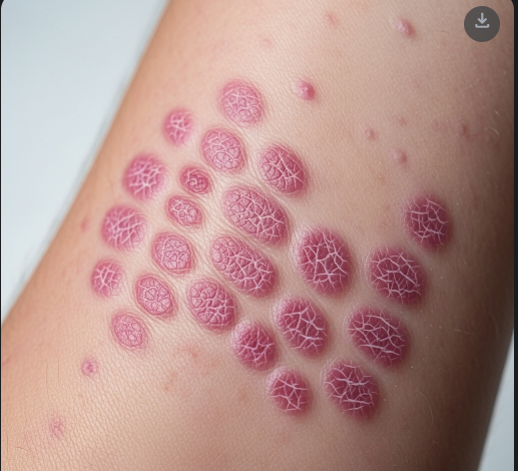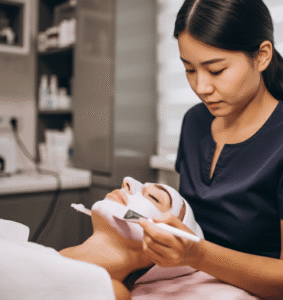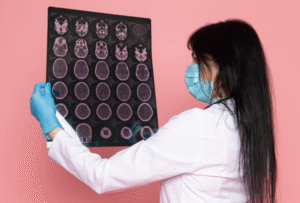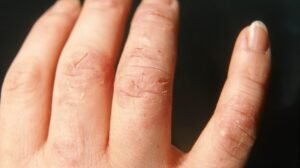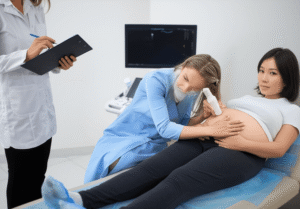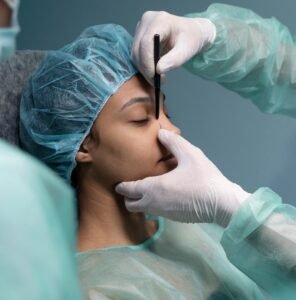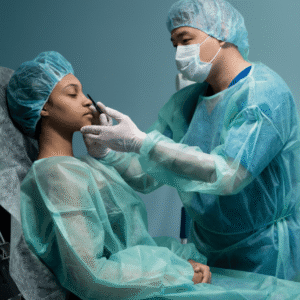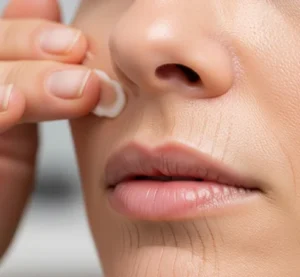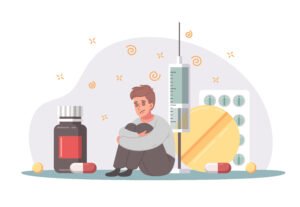Overview
Lichen planus is a chronic inflammatory condition that affects the skin, mucous membranes, hair follicles, and nails. It manifests as purplish, itchy, flat-topped bumps and can cause discomfort and cosmetic concerns. Though the exact cause is unknown, it is considered an autoimmune disorder.
What Is Lichen Planus?
Lichen planus is a disease where the immune system mistakenly attacks the skin and mucous membranes, leading to inflammation and characteristic lesions. It can occur anywhere on the body but is most common on the wrists, lower back, and inside the mouth.
Symptoms
- Purplish, flat-topped, itchy bumps on the skin
- White lacy patches inside the mouth or on the genitalia
- Pain or discomfort in affected mucous membranes
- Nail changes, including thinning, ridging, or loss
- Hair loss in some cases when scalp is involved
- Burning sensation or soreness in the mouth
Causes
- Exact cause unknown
- Autoimmune reaction targeting skin and mucous membranes
- Possible triggers include viral infections (hepatitis C), medications, stress, and allergens
Risk Factors
- Middle-aged adults (most common between 30-60 years)
- Women are slightly more affected than men
- History of hepatitis C infection
- Genetic predisposition
- Exposure to certain medications or chemicals
Complications
- Secondary infections of skin or oral lesions
- Chronic discomfort affecting quality of life
- Rarely, oral lichen planus can lead to precancerous changes
- Nail damage causing permanent deformities
Prevention
- Avoid known triggers such as certain medications and allergens
- Manage stress through relaxation techniques
- Maintain good oral hygiene and regular dental check-ups
- Avoid irritants like tobacco and alcohol
- Early diagnosis and treatment to prevent complications
Treatment Options in Korea
Korea offers advanced care for lichen planus through:
- Topical Treatments: Corticosteroids, calcineurin inhibitors, and other anti-inflammatory creams or ointments.
- Systemic Medications: Oral corticosteroids, retinoids, or immunosuppressants for severe or widespread cases.
- Phototherapy: Light therapy to reduce skin inflammation.
- Oral Care: Special mouthwashes and gels to relieve oral symptoms.
- Complementary Therapies: Acupuncture and herbal medicine used in some clinics to support symptom relief.
- Regular Monitoring: To detect any precancerous changes, especially for oral lichen planus.
Korea’s dermatology and dental specialists provide personalized treatment plans ensuring effective symptom control and improved quality of life.

